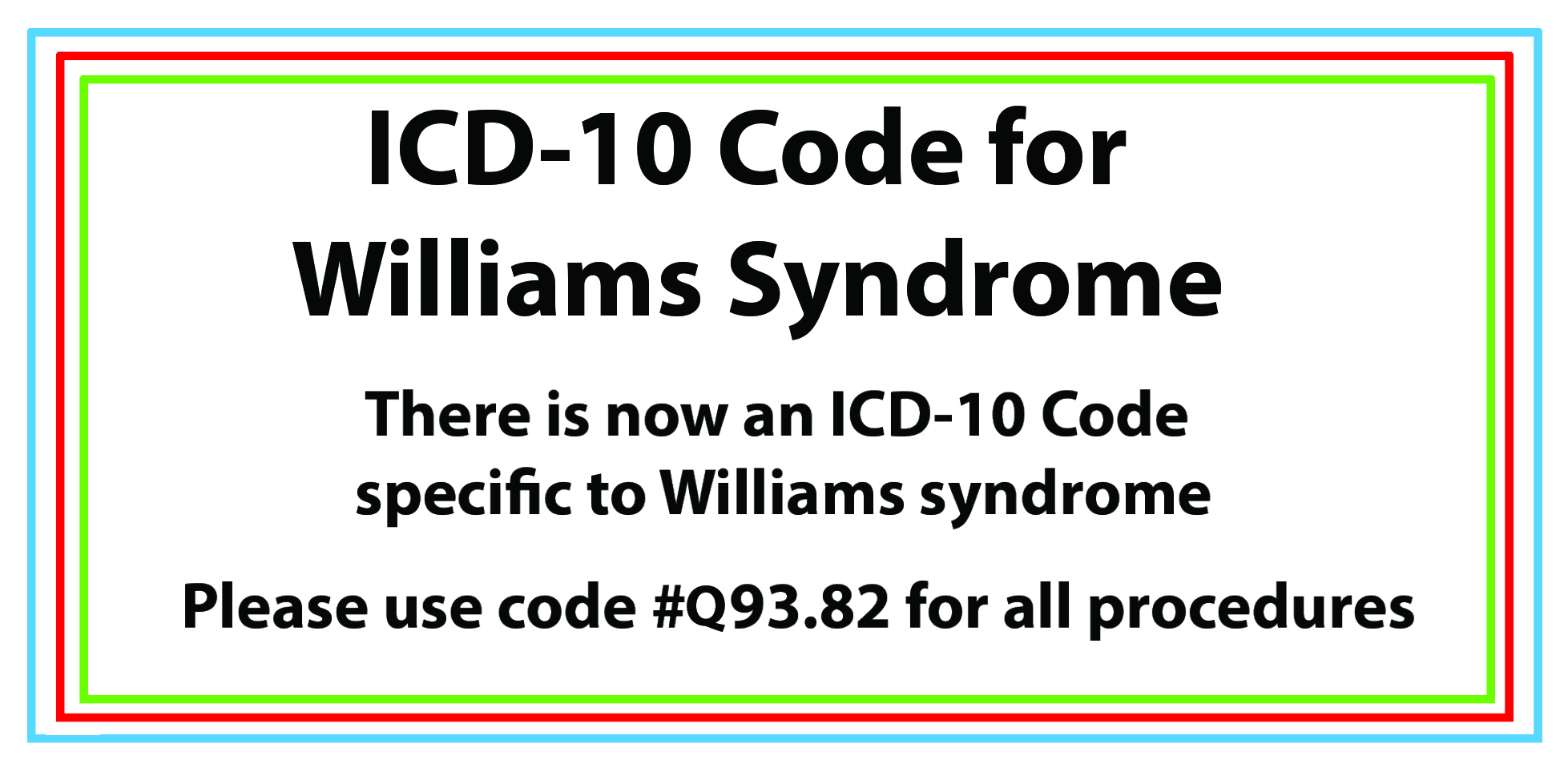
Healthcare Guidelines for Children
The American Academy of Pediatrics has published guidelines (updated in January 2020) for the medical care of children with Williams syndrome. The protocol was developed by the medical advisors of the Williams Syndrome Association and details all of the "routine" testing that should be performed for patients with Williams syndrome during annual exams.
Anytime you visit either a WS Clinic or your local physicians please tell them about the new ICD-10 diagnostic code for Williams syndrome, and ask them to put it in their records of use on all procedure reports. ICD-10 codes are used primarily by insurance providers but they are also extremely important to the research community. Your physician's use of the ICD-10 code specific to Williams syndrome can truly make a difference for future research on Williams syndrome.

Click the links below to access these excellent guides for healthcare supervision of children with Williams syndrome.
Healthcare Guidelines for Adults
As individuals with Williams syndrome age, they may develop new medical issues. Anxiety, depression, diabetes and gastro-intestinal disorders are not uncommon. The resources included below address adult health issues with Williams syndrome.
The Importance of Seeking Second Opinions
When advocating for your child with WS or for yourself, it is important to recognize that WS is a rare enough disorder that most healthcare professionals would not be expected to be aware of the constellation of issues that can be involved.
In order to provide comprehensive care, it is often in the patient's or caregiver's best interest to seek additional opinions from doctors who may simply have more experience providing healthcare to the WS population. Any family should be comfortable broaching this subject with their physician, without worrying about stepping on toes. Most healthcare providers welcome getting more information from physicians with more experience caring for patients with WS.
This is especially important when addressing the issue of anesthesia risk. Families should feel empowered to make it clear that patients with WS have additional risks associated with anesthesia and to bring this fact to the attention of the team providing the anesthesia. To this end, active research is underway to both understand the nature of these risks and to provide information to achieve the best outcome. Doctors can be directed to the WSA to connect to links with such information. Specific information regarding anesthesia risks is also available, which offers printable articles and resources that can be provided directly to your physician(s).
The medical community is working with many variables, and it is often up to us to help advocate, inform, and take an active role so the best care can be provided.
